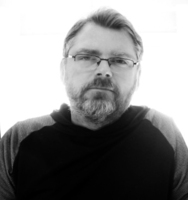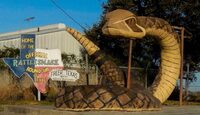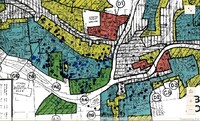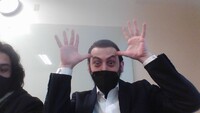Contributor Bios
Item: Jenna Bonner
서울, 대한민국
Item: Man Joong Kim
서울 강남, 경기도, 대한민국
Item: Man Joong Kim
서울, 대한민국
Item: Man Joong Kim
서울, 대한민국
Item: Man Joong Kim
Childhood Home
Item: Mary Tuttle
Current Home
Item: Mary Tuttle
Robert Moses Beach
Item: Mary Tuttle
Pensacola, Florida: Where I attended the University of West Florida
Item: Geoffrey Ramirez
Binghamton, New York: Where I currently reside and study. What a long, strange trip it's been.
Item: Geoffrey Ramirez
Fresno, California: Where I'm originally from.
Item: Geoffrey Ramirez
Hometown / Home
Item: Emine Esra Nalbant
University I had my MA
Item: Emine Esra Nalbant
Where I work and study now !
Item: Emine Esra Nalbant
Item: Bilal Ali
Item: Bilal Ali
Item: Bilal Ali
Item: Bilal Ali
Item: Bilal Ali
Item: Bilal Ali
Item: Bilal Ali
Item: Bilal Ali
Item: Bilal Ali
Item: Bilal Ali
https://medium.com/@bilalali1000/how-to-rise-after-getting-sick-eb79ecae554f
Item: Bilal Ali
https://www.amazon.com/Stories-My-Photographs-Bilal-Ali-ebook/dp/B08FZSSBYC
Item: Bilal Ali
Item: Bilal Ali
Item: Bilal Ali
Item: Bilal Ali
https://www.amazon.com/Stories-Last-Semesters-Bilal-Ali-ebook/dp/B09P9S22NT/ref=sr_1_1?keywords=stories+of+my+last+semesters&qid=1644333134&sprefix=stories+of+my+la%2Caps%2C68&sr=8-1
Item: Bilal Ali
Site of Larrabee-Deyo Hillcrest Factory
Item: Nathan Ciulla
Site of Demolished Larrabee-Deyo Front Street Factory
Item: Nathan Ciulla
Item: Ting Cheung, Wong
Item: Ting Cheung, Wong
State University of New York at Binghamton, 4400, Vestal Parkway East, Binghamton, Vestal Town, Broome County, 纽约州 / 紐約州, 13902, 美利坚合众国/美利堅合眾國
Item: Ting Cheung, Wong
-
Ting Cheung, Wong
I focus on the political history of Song China. Although political history seems like an old paradigm, with in influence of "dynamic institional history" and environmental history studies rised in the last two decades, studying the river management executed by the imperial government throughout the middle and the late period of Northern Song Dynasty could creat a new narrative to explain the state building process and the interaction between scholar-officials, eunuchs and the emperor during this period. Recently, I am also exploring Muslims in Qing Empire, and my monograph co-edited with other scholars about the Muslims in the Veritable Records of Successive Reigns of the Qing Dynasty before 1800 is coming out this year.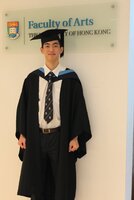
-
Nathan Ciulla
I am focused on the development of railroads in British and Japanese colonies respective to each nations industrialization process. Although they seem like purely economic projects from the outside, railroads when used as colonizing tools in India, Kenya, South Africa and Korea provided a system of both material and internalized control.
-
Bilal Ali
How Pakistan International Airlines assist in the development of the nation-state of Pakistan?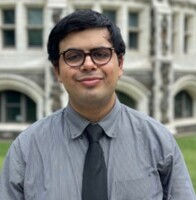
-
Kadir Sarp Sok
I am focused on forced migration, relief organizations, and the instrumentalization of refugees in the Late Ottoman Empire and the Modern Middle East.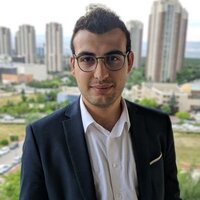
-
Emine Esra Nalbant
I am a PhD student in Binghamton University Art History Department and one of the contributors of this project. I am from Ankara and did my MA in Istanbul. I am interested in lighthouses as maritime infrastructure network in Late Ottoman Empire.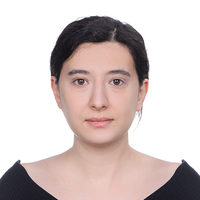
-
Geoffrey Ramirez
I am a Ph.D. candidate studying popular culture and its effects on gender, sexual, and community identity formation in modern U.S. History. I have a background in Public History and working on digital projects, so I am committed to seeing more history projects embrace a variety of mediums to empower communities. Learning new tools for mapping, data linking, and programming was trying but worthwhile. Taking these skills into the future will prove invaluable in the field I seek to go into. Mapping and translating a physical space into a historical narrative is a crucial part of Public History, so it was wonderful to get experience with a project like this. I hope that Mapping Violence grows far beyond what we here could do within a month and the people of Sur get the recognition and support they need.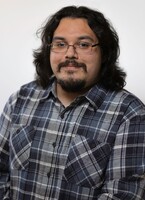
-
Benny Kellman's Excellent Bio
History and Hackysack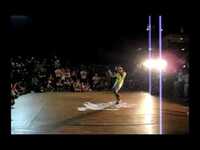
-
Mary Tuttle
Russian/Post-Soviet History; Eastern European Immigrants; Digital Humanities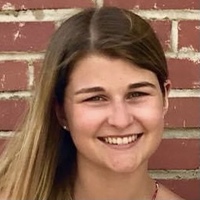
-
Man Joong Kim
Transnational History, Urban History, Architecture, Film,
-
Jenna Bonner
I focus on the history of gender and sexuality in early America. The bulk of my work and research has been more specifically over queer histories, with my most recent project centering on the connection between gender, language, and theology in the Society of the Publick Universal Friend during the Revolutionary and New Republic eras. I am interested also in broader Atlantic histories, histories of the US South, and modern LGBTQ+ histories, among many others.
-
Brad Skopyk
I am an historian of colonial Mexico, studying the intersection of human culture and environmental factors such as disease, climate, and land use. I make extensive use of methods in the Spatial & Digital Humanities such as the interrogation of historical maps, keeping data in geodatabases, mapping social and environmental relationships, and using spatial statistics and other forms of analysis to derive meaning from data. I integrate research from the humanities, social sciences, and the physical sciences to enable a deep interdisciplinary view of history.